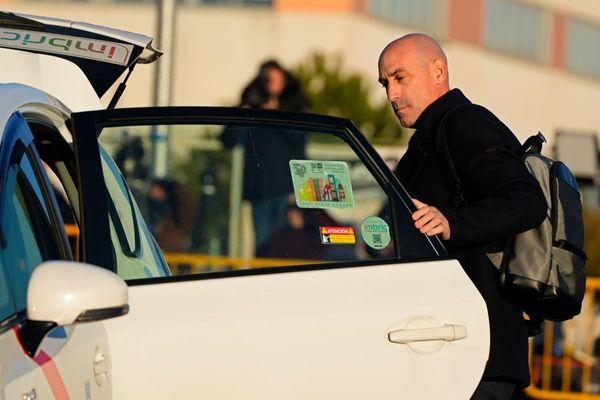
Dropped deep in the Tasmanian wilderness in the middle of winter, contestants on the new SBS TV series Alone Australia are given a sole remit to live on their lonesome for as long as they see fit (or the show deems them unfit).
They must do what they can to satiate hunger, thirst and the elements, but raw survival does not mean a free-for-all on flora and fauna. What each of the 10 contestants can take, kill, and eat is governed by Tasmanian environmental laws and First Nations cultural codes.
“In many of the US seasons you see bow hunting take place. It was very clear that was not going to be able to happen,” head of SBS Unscripted Joseph Maxwell told Crikey.
“The laws that we worked to was a hunting permit that allowed us to do live capture of animals. If there’s anything endangered, they’re let go.”
No matter how hungry a contestant is, if they find themselves looking at dinner that’s not on the Tasmanian government’s game menu, they’re obligated to send it on its way.
If they’re in a state of delirium that inhibits that decision-making (either physical capacity wanes or the scales tip on compos mentis) Maxwell said they’re not fit to continue on the show.
“I don’t think you would ever get to a stage where someone was behaving that erratically,” he said.
Who and what can hunt and be hunted in Tasmania?
According to Tasmanian law, it is a prerequisite that any person wishing to play predator declares all criminal convictions in the past five years. As for the hunted, they must identify as deer, wild duck, muttonbird, wallaby, brown quail and pheasant. It’s a seasonal game for both parties and a licence is required.
Deer has the highest price on its head and costs a hunter $76.50 ($61.20 for a concession) for a licence to kill. Pheasant is the least lucrative at $17 ($13.60 concession).
Other rules include no hunting by night (officially one hour after sunset and one hour before sunrise), and no use of “baits, live decoys, traps, snares, spears, bows and arrows, explosives, poison, bird lime and chemical compounds”.
In an email to Crikey, a spokesperson from the Department of Natural Resources and Environment Tasmania said that Alone Australia was provided with a permit that allowed participants to take “permitted fauna under specific conditions”.
“Interactions with wildlife were permitted only in relation to hunting or fishing and participants were required to be inducted regarding obligations under the permit, which included training in wildlife species identification and appropriate methods to take wildlife,” the department said.
Food prep and plating up
Maxwell said contestants are bound by a “bible” of strict dos and don’ts. Any broken clauses and it’s game over: “There was zero sidestepping of laws.”
Before they landed in the wild, participants were given training on the environment that awaits them. Maxwell would not disclose the ins and outs of this other than that it was a “boot camp” with location-specific information gleaned from intensive consultations with land stakeholders (government and private) and First Nations practitioners, as well as a detailed ecological assessment of the land in western lutruwita (Tasmania).
Survival skills were not taught as Maxwell said there’s an expectation contestant bring these themselves.
“The reason they’ve been cast is because they have expertise and experience in what they’re doing,” Maxwell said.
“What we train them on is what they can and cannot trap and can and cannot take, not about how to trap or not.”
In short: the course curriculum has required reading on the legal and cultural status of flora and fauna and recommended reading on the cultivation and killing of appropriate flora and fauna.
Maxwell was very clear that no endangered animals were in any way harmed or killed within the show (no fatal errors on the part of tired and hungry contestants), but citing spoilers, he would not disclose the proportion of animals successfully trapped that had to be released.
“All I would say is that trapping is incredibly hard,” he said, adding that fishing becomes an increasingly key strategy for contestants.
“You will see that food is not plentiful, and therefore when it comes it’s incredibly valued. We all go eat, consume. Here, people are brought back to a level where every resource is precious and respected.”







